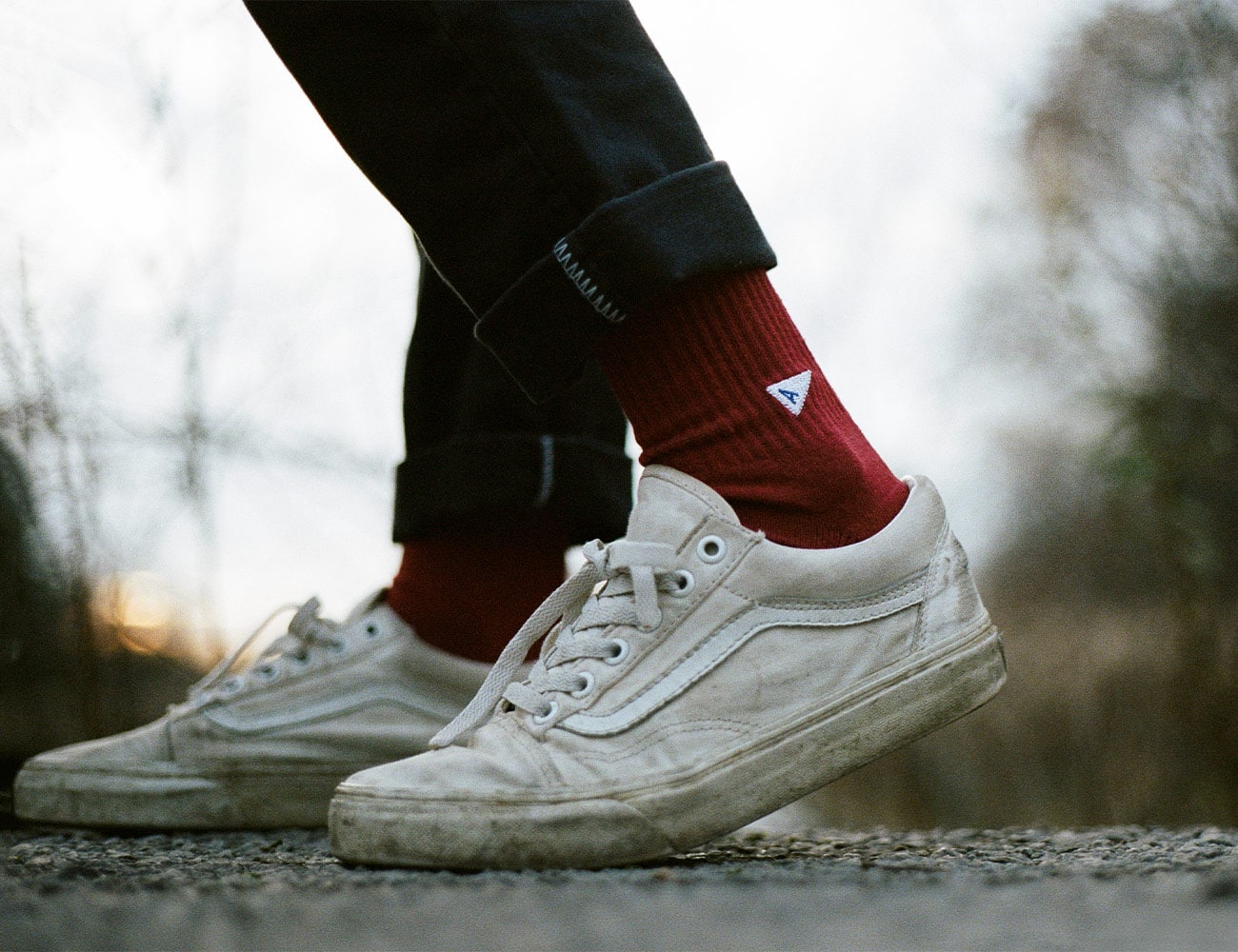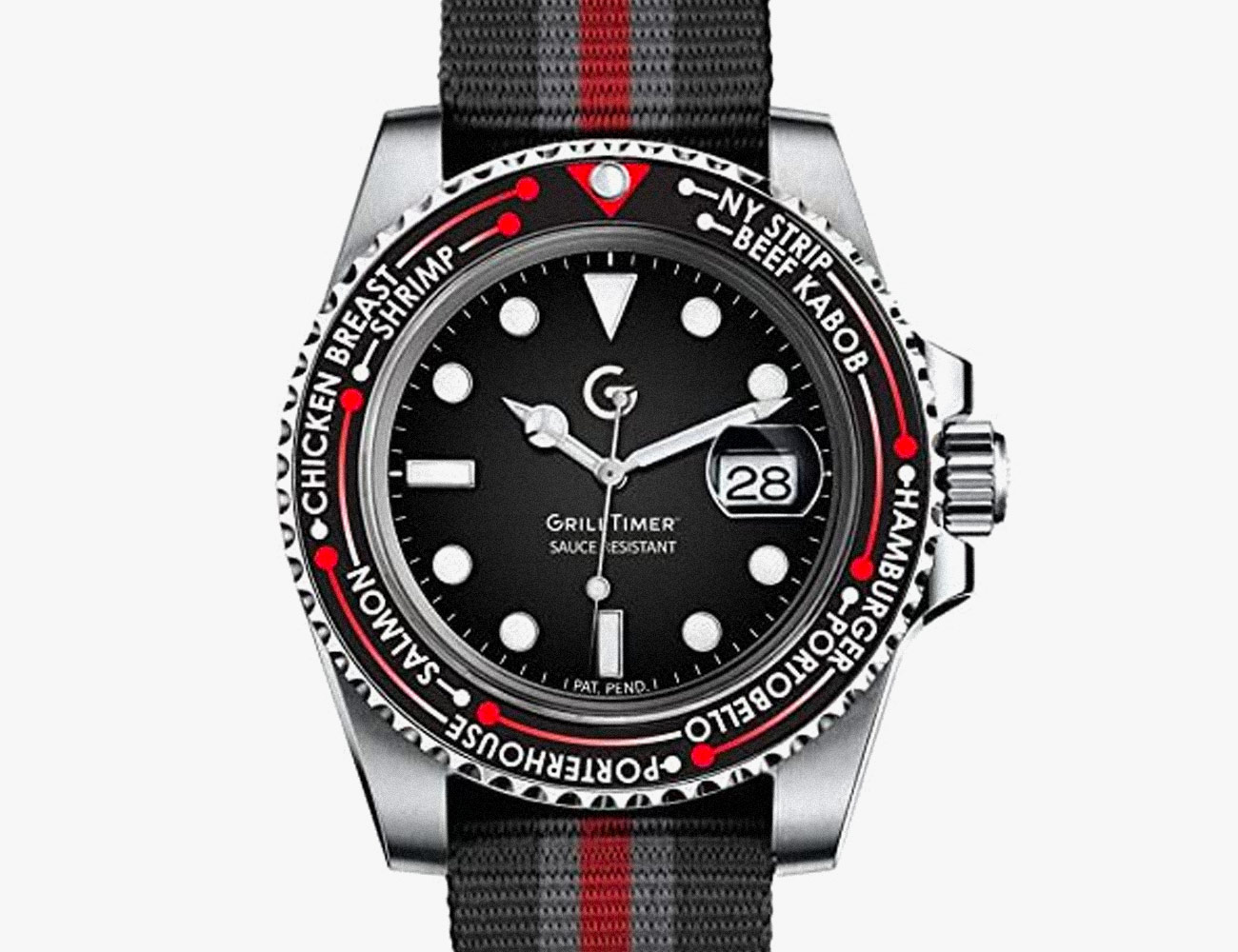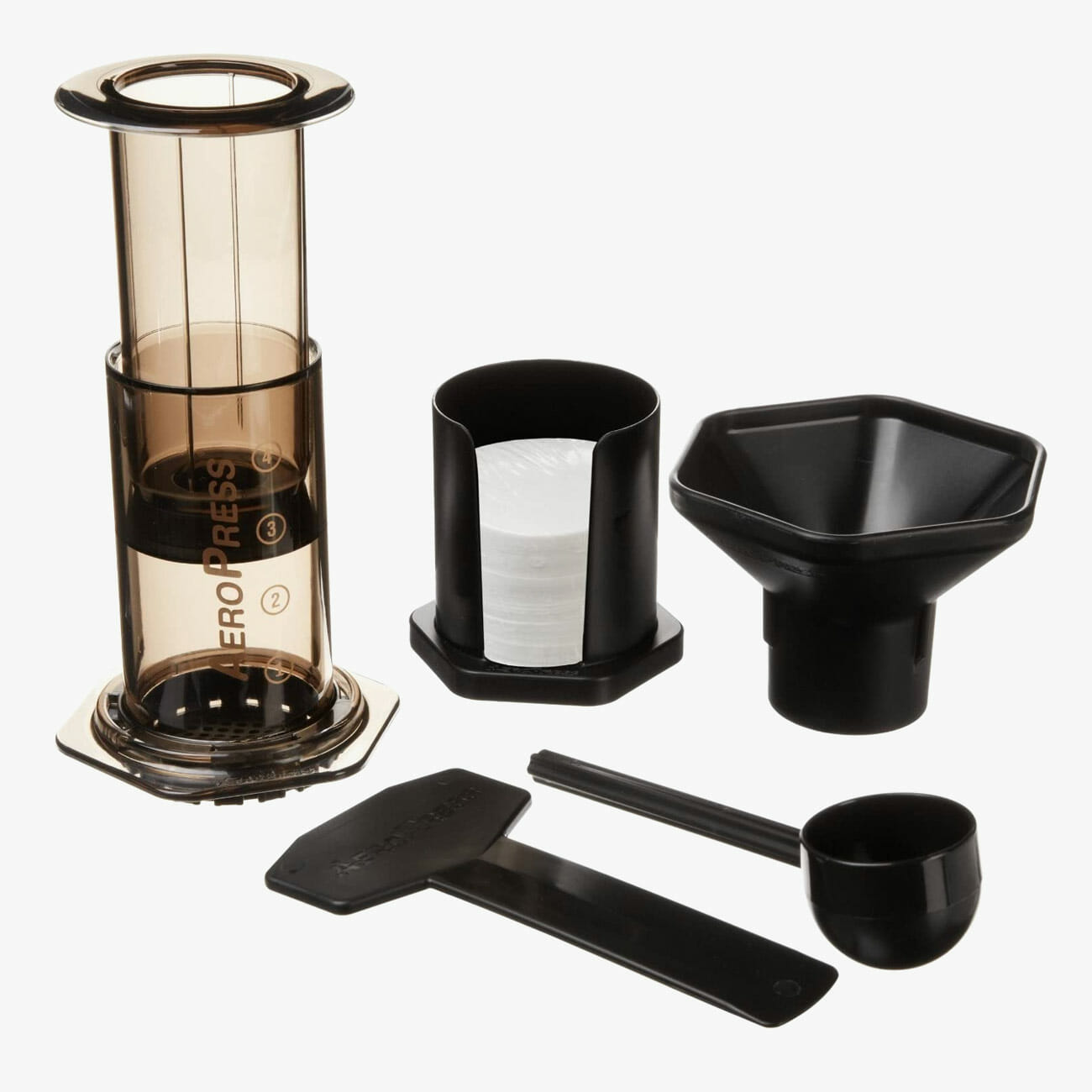From Issue Seven of Gear Patrol Magazine.
Doing the right thing doesn’t mean you have to spend twice as much,” said Dustin Winegardner, the cofounder of Arvin Goods. He was referring to the assumption that sustainably made, or eco-friendly clothes must dwarf traditionally made styles in price. And he’s been steadily disproving that thinking since he launched his line of tasteful socks and underwear — all made from recycled clothing and materials — in 2017.

By that time, Winegardner had been working in product development and manufacturing on behalf of other brands for close to a decade. His company, ITC Accessories, sourced materials for the likes of Tommy Hilfiger and Calvin Klein, and he saw firsthand the possibility for a new type of underwear brand to emerge. So, he joined forces with Harry Fricker — a freelance creative director who had worked at Bocci and Finisterre — and founded Arvin Goods. “On the social media platforms, all these basics brands were exploding, but no one was doing it in any sort of sustainable way,” he said. “So I just saw an opportunity to create our own brand around this material we already had and supply chain we already had.”
The recycled cotton-poly yarns that Winegardner had access to were an ideal place to start. Using recycled yarns saves fresh water, reduces landfill waste, lowers CO2 emissions and eliminates the need to buy virgin materials from energy-dependent farms and factories. While one kilogram of cotton fabric takes somewhere between 10,000 and 20,000 liters of water to produce, recycled cotton requires virtually nothing. In the U.S. alone, over 16 million tons of textile waste is generated each year, and only a small percentage of that is recycled. “We haven’t even turned on the trickle of the faucet of recycling our waste materials,” Winegardner said. Because basics are replaced more frequently than other garments, they’re a salient place for people to bring sustainable clothes into their wardrobes. Arvin Goods encourages its customers to donate worn garments back to the brand after years of wear. This closed apparel loop keeps the product out of landfills.

While sustainability is at the core of Arvin Goods, it doesn’t inhibit the quality or comfort of its products. The socks — available in a wide range of colors — feature an elastic ribbed cuff, a terry-loop padded footbed and an elastic arch support. The boxer briefs, which Arvin bills as “ridiculously competent,” are supportive, breathable and lightweight. And they’re fairly priced: socks range from $8 to $15 per pair and boxer briefs cost $16.
“All these basics brands were exploding, but no one was doing it in any sort of sustainable way. So I just saw an opportunity to create our own brand.”
Because the initial response to Arvin has been so strong, Winegardner is working on even more products, including a comfortable, performance-oriented pair of men’s underwear made from regenerated nylon — utilizing ocean waste and fishing nets — as well as a line of unisex tops that will launch next spring. “I think as people start to understand that their [conventional] t-shirt used a considerable amount of water to produce, their eyes will open up to it,” Winegardner said. As with the socks and underwear, the new shirts will have tasteful design — and a competitive mid-range price.

As his company grows, Winegardner looks toward an industry leader to guide his decisions. “I think Patagonia is the best model,” he said. “They’ve created something that is theirs and that people love and that does good and is interesting.” He hopes that as more people realize they can get great sustainable products at an affordable price, they’ll flock to brands like Arvin Goods. An increased sales volume would eventually translate to a greater environmental impact. And while that outcome has a wealth of potential, for Winegardner, it all comes down to a simple idea: “The mission is to make the cleanest basics brand in the world.”





